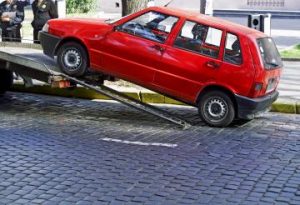 All engines have either a timing belt or a timing chain to synchronize the opening and closing of the intake and exhaust valves. This keeps the engine running smoothly and efficiently. If the timing is off, it may not even run at all. Timing belts need to be replaced on schedule. A broken or slipping timing belt could cause extensive engine damage.
All engines have either a timing belt or a timing chain to synchronize the opening and closing of the intake and exhaust valves. This keeps the engine running smoothly and efficiently. If the timing is off, it may not even run at all. Timing belts need to be replaced on schedule. A broken or slipping timing belt could cause extensive engine damage.
Timing chains are being used more and more in modern engines. They are more durable and usually don’t have a recommended replacement interval. However, timing chains and their associated components do wear out over time. The tensioner and guide rails can wear out, which causes the timing chain to be loose. A tooth on a cam sprocket could break allowing the timing chain to slip. You don’t want to wait for a complete failure ( and possible extensive damage) so it’s important to watch for the signs of impending failure.
You may notice sluggish performance, reduced fuel economy or difficulty starting when the timing chain system is worn. You could hear a variety of noises: rattle, rumble, whine, buzz, or whir coming from the engine. If you experience any of these things, bring it to our attention and we’ll look into it. If you do require a timing chain replacement, we’ll also replace all the other system wear components such as the tension and guide rails.
Although the timing chain does not require maintenance as we usually think of it, it does require constant lubrication. The engine does this normally as it runs. However, a low oil level or using a poor quality oil will keep the timing chain from being properly lubricated. A timing chain can last a long time with regular oil changes using quality oil. Regular oil changes are an easy way to lengthen the life of your timing chain, I bet we can all manage that.
